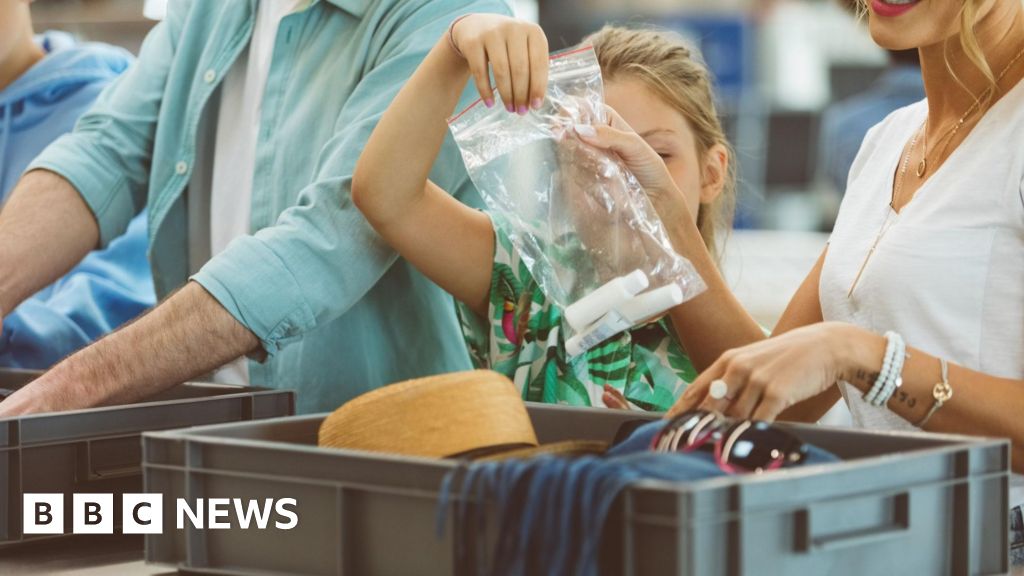Image source, Getty Images
- Author, Cat McGowan
- Role, BBC news
-
Some regional airports in Britain are temporarily reintroducing restrictions on carrying liquids over 100ml in hand luggage.
The change will apply from 00:01 BST on Sunday 9 June 2024 and will affect passengers at Newcastle, Leeds Bradford, London City, Aberdeen, Southend and Teesside airports.
All affected airports have Next Generation Security Checkpoints (NGSC) fully operational and have removed the 100ml liquid rule following the introduction of the high-tech CT scanners.
The Department for Transport said the reintroduction of restrictions would “allow further improvements to the new checkpoint systems” and was not in response to any specific threat.
The six smaller affected airports warned passengers to put liquids in hold baggage where possible to avoid security delays.
Liquids carried in hand luggage may not contain more than 100 ml.
A spokesperson for Newcastle International Airport said the airport was working to “minimise disruption”.
Transport Secretary Mark Harper advised passengers to check airport websites for specific rules before traveling.
“For most passengers the rules haven’t actually changed at all and therefore won’t change tonight,” he told BBC Breakfast.
He said the reintroduction of restrictions was intended to allow “changes” to the scanning equipment.
“It is a temporary measure and we will determine when it can be reversed in due course,” he said.
The government originally told all UK airports to upgrade to the new scanners by 2022, but the deadline was later moved to June 1, 2024. Major airports were then allowed to miss the June 1 rollout date.
For some airports, the new scanners, which are larger and heavier than older versions, required physical changes to security areas and in some cases even the reinforcement of floors.
The six smaller airports had met the deadline and abolished the 100 ml rule.
Teesside Airport said it was “proud” to be the first UK airport to drop the 100ml limit after significant investment in the new technologies.
A spokesperson said this meant passengers had a smoother journey, but added: “We acknowledge and respect the Department for Transport’s announcement and will fully comply with all requirements.
“We hope that this national problem will be resolved as soon as possible.”
Birmingham Airport had already switched to the new equipment, but had to adhere to the 100ml rule – although passengers are not required to remove liquids up to 100ml from hand luggage at security checks. It attributes this to “excellent regulatory approval for its new screening machines”.
Airports that missed the installation deadline have been able to individually apply for an extension, which could mean passengers will have to deal with the restrictions until June 2025.
The DfT previously said the Civil Aviation Authority would impose financial penalties on airports that continued to miss deadlines.
In January, consumer group Which? warned that extending restrictions over the summer holidays could cause confusion.
The rules requiring liquids to be brought through security, in containers of 100ml or less in a clear plastic bag, were introduced in 2006 after a plot to bomb a transatlantic flight was foiled.
The new scanners use CT X-ray technology to provide 3D images, allowing items to be left in bags and liquids up to two liters are allowed.
Airports have been hit by supply chain issues and faced major construction work to install the scanners.
The X-ray machines, similar to CT scanners used in hospitals, are very heavy and in some cases the floors will need to be reinforced.
